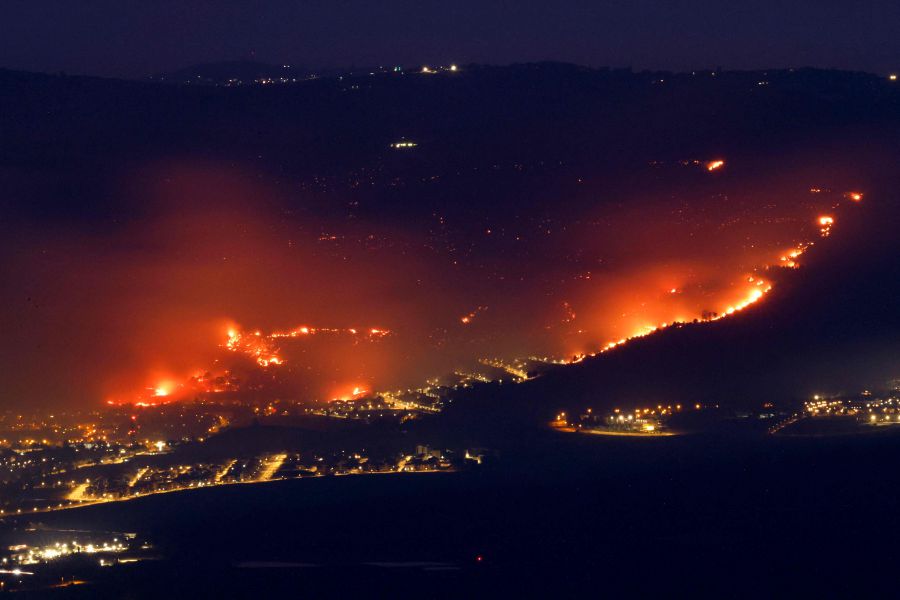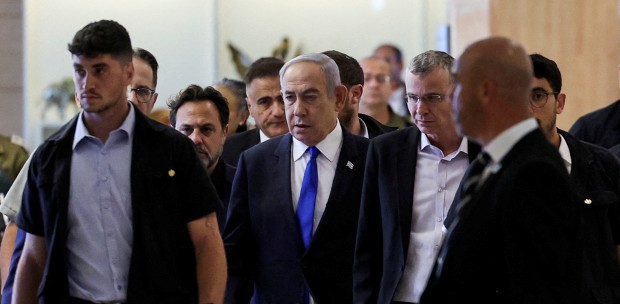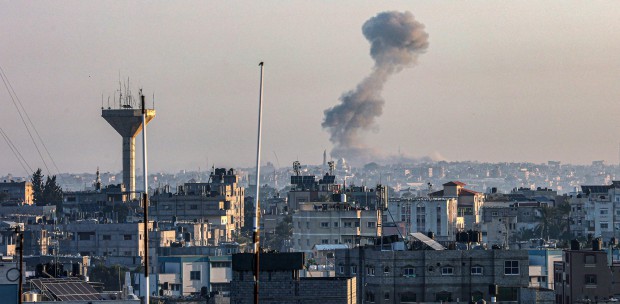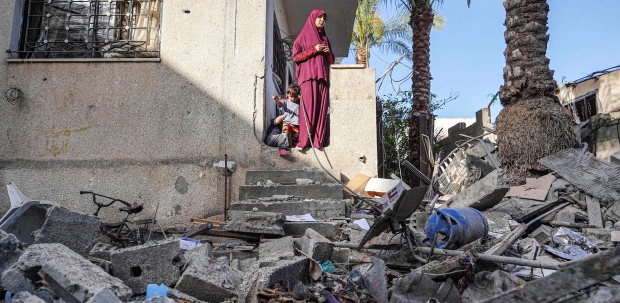RAFAH, PALESTINIAN TERRITORIES: Israel on Tuesday mourned four captives reported dead in Gaza by the army amid growing doubts and international pressure over a plan for a ceasefire and hostage release deal outlined by US President Joe Biden.
In the besieged Palestinian territory, Israeli strikes continued early Tuesday, particularly in Bureij in central Gaza where local hospital sources reported several deaths.
In northern Israel, firefighters and troops were battling forest blazes after rocket fire from neighbouring Lebanon, with the border area the scene of near-daily exchanges of fire between the Israeli army and the Hezbollah, an ally of Hamas, since the start of the war in Gaza nearly eight months ago.
Israel's military on Monday announced the deaths in Gaza of four hostages seized during the October 7 Hamas attack on Israel, naming them as Chaim Perry, Yoram Metzger, Amiram Cooper and Nadav Popplewell.
Their bodies were still in the hands of Hamas, it added.
Cooper, 84, Metzger, 80, and Perry, 80, were abducted from the Nir Oz kibbutz while Israeli-British citizen Popplewell, 51, was kidnapped from the Nirim kibbutz.
British foreign minister David Cameron said he was "greatly saddened to hear about the death" of Popplewell, adding: "we reiterate our demand for Hamas to send all hostages home."
"They should have returned alive to their country and their families," the Hostages Families Forum said.
Netanyahu, a hawkish veteran leading a fragile hard-right coalition government, is under intense domestic pressure from multiple sides.
Relatives and supporters of hostages have staged mass protests demanding a truce deal – but his far-right coalition allies are threatening to bring down the government if he agrees to that.
Biden on Friday presented what he labelled an Israeli three-phase plan that would end the bloody conflict, free all hostages and lead to the reconstruction of the devastated Palestinian territory without Hamas in power.
However, Netanyahu's office stressed that the war would continue until all of Israel's "goals are achieved", including the destruction of Hamas's military and governing capabilities.
The G7 group of countries said in a statement its leaders "fully endorse" the deal pushed by Biden, and called on Hamas to accept it.
Hamas on Friday said it viewed Biden's outline "positively", but has since made no official comment on stalled negotiations, while mediators Qatar, Egypt and the United States have not announced any new talks.
Foreign ministers from Saudi Arabia, the United Arab Emirates, Qatar, Jordan and Egypt issued a statement on Monday backing the latest diplomatic effort.
UN Middle East envoy Tor Wennesland Tuesday urged all parties to reach an agreement after he visited Gaza and "witnessed firsthand the devastating impact of the hostilities. The scenes of destruction & suffering of people are heart-wrenching."
"There is a serious proposal on the table – outlined by President Biden – and I urge all parties to reach an agreement immediately to achieve a ceasefire and return the hostages. There is no alternative – and any delay, every day simply costs more lives," he posted on X.
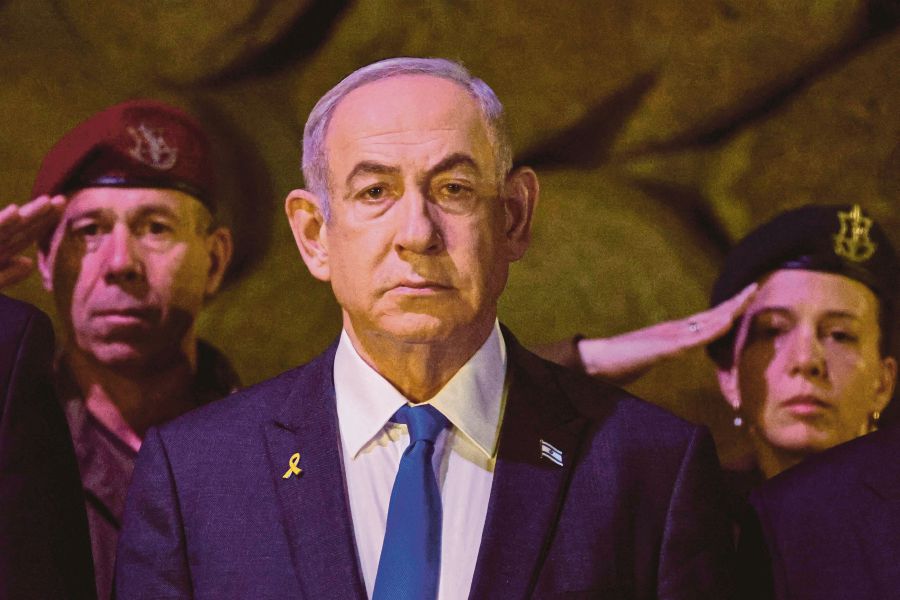
Israeli government spokesman David Mencer earlier quoted Netanyahu as saying that the outline Biden presented was only "partial", and that under the plan fighting would only stop temporarily "for the purpose of returning the hostages."
The fighting showed no sign of easing, with the war that has devastated the coastal territory of 2.4 million people soon to enter its ninth month.
On Monday, Israel's military said its forces had struck "over 50 targets" over the past day, and Gaza hospitals reported at least 19 fatalities in overnight strikes.
The war was sparked by Hamas's October 7 attack, which resulted in the deaths of 1,194 people, mostly civilians, according to an AFP tally based on Israeli official figures.
Israel's retaliatory bombardment and ground offensive have killed at least 36,470 people in Gaza, also mostly civilians, according to data provided by the Hamas-run territory's health ministry.
Some 55 percent of all structures in the Gaza Strip have been destroyed, damaged or "possibly damaged" since the war erupted, according to the United Nations satellite analysis agency.
Heavy fighting has raged especially in Gaza's far-southern Rafah area near the Egyptian border, where UN agencies say most civilians have now been displaced once more.
UN and other aid agencies have warned for months of the looming risk of famine in the besieged territory amid a spiralling humanitarian crisis.
Among bombed out buildings in the southern city of Khan Yunis, displaced Gazans were trying to remove sewage from their tents on Monday after a pipeline burst, flooding them in dirty water.
"This is no life," said Abdullah Barbakh.
"The sewage has flooded over us. We can't eat or drink, and we're unable to sleep. We are sleeping in the streets," said resident Abdul Samad Barbakh.
In northern Israel, firefighters were battling intense forest fires that broke out shortly after rocket and drone strikes from neighbouring Lebanon, forcing the partial evacuation of Kiryat Shmona.
An AFP photographer in the northeastern town saw intense blazes engulfing parts of the area bordering Lebanon, the scene of near-daily exchanges of fire between the Israeli army and the Iran-backed Hezbollah on the sidelines of the war in Gaza.


